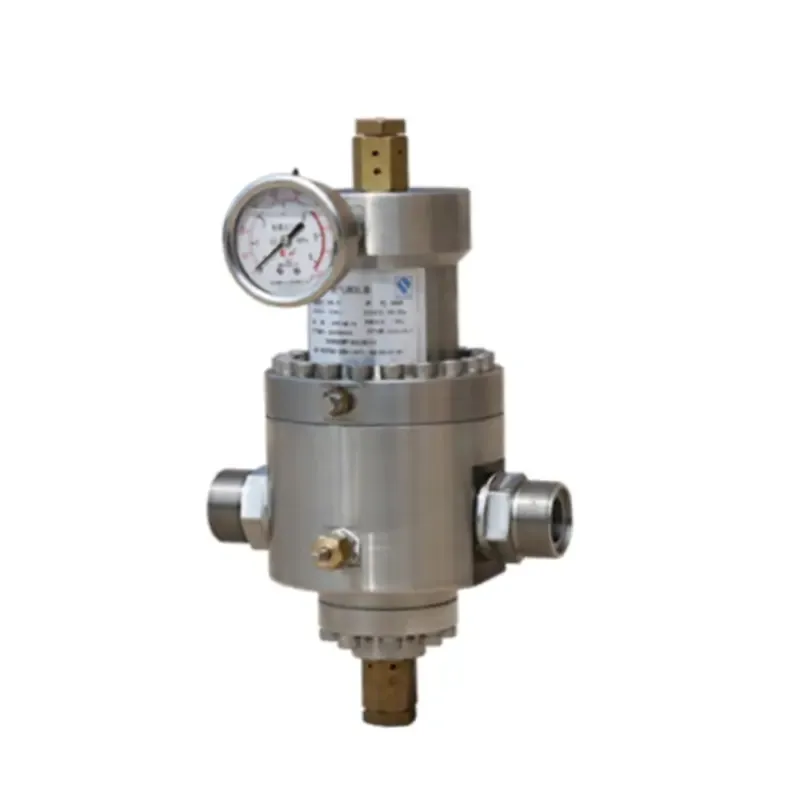
Sep . 28, 2024 04:37
Back to list
Natural Gas Valve and Its Importance in Energy Management Systems
The Significance of Natural Gas Regulators in Energy Distribution
Natural gas is one of the primary sources of energy utilized globally, playing a pivotal role in heating, cooking, and electricity generation. With its increasing demand in urban areas and industries, the reliable and safe distribution of natural gas is paramount. One of the crucial components that ensure the efficient delivery of natural gas is the natural gas regulator, an often-overlooked device that is essential in the pipeline infrastructure.
A natural gas regulator serves as a control mechanism that regulates the pressure of the gas flowing through pipelines. High-pressure natural gas coming from the transmission lines must be reduced to a safe and usable level before it can enter homes and businesses. Regulators ensure that the pressure is maintained at suitable levels to prevent damage to appliances and to ensure safety.
.
The installation of regulators is a critical safety measure. Excessive pressure can lead to hazardous situations, including gas leaks, explosions, and equipment failures. As such, both residential and commercial installations are required by law to have regulators fitted to their gas supply systems, ensuring that gas is delivered safely to end-users. Additionally, these devices play a vital role in energy efficiency. By maintaining the pressure within designated limits, regulators ensure that appliances operate at optimal efficiency, thus reducing wasted energy and lowering utility bills.
صمام الغاز الطبيعي

In addition to traditional mechanical regulators, advancements in technology have seen the rise of electronic or smart regulators. These modern devices can monitor gas pressure and flow rates in real-time, offering enhanced accuracy and control. Some are even equipped with built-in safety features that can detect anomalies and shut down the supply automatically, significantly reducing the risk of accidents.
The maintenance of natural gas regulators is another important factor in energy distribution. Regular inspections and servicing are crucial to ensure that these devices function correctly. Over time, wear and tear can cause regulators to malfunction, leading to incorrect pressure outputs which can be dangerous. Utility companies often have maintenance programs in place to check the condition of their gas infrastructure, including regulators.
The energy landscape is continuously evolving, with a push towards cleaner and more sustainable sources of energy. However, natural gas is expected to remain a key player in the global energy mix for the foreseeable future, given its efficiency and lower carbon footprint compared to other fossil fuels. As we move towards more sustainable energy solutions, the role of natural gas and its regulators will be critical in balancing energy needs with environmental responsibility.
In conclusion, natural gas regulators are indispensable components of the energy distribution system. Their ability to manage gas pressure not only enhances safety but also ensures efficient energy delivery. With technological advancements, the future of natural gas regulators looks promising, further solidifying their role in a reliable and safe energy infrastructure. As the world continues to shift towards renewable energy while still relying on natural gas, understanding and supporting these vital systems will be paramount for both safety and efficiency in energy distribution.
Latest news
-
Safety Valve Spring-Loaded Design Overpressure ProtectionNewsJul.25,2025
-
Precision Voltage Regulator AC5 Accuracy Grade PerformanceNewsJul.25,2025
-
Natural Gas Pressure Regulating Skid Industrial Pipeline ApplicationsNewsJul.25,2025
-
Natural Gas Filter Stainless Steel Mesh Element DesignNewsJul.25,2025
-
Gas Pressure Regulator Valve Direct-Acting Spring-Loaded DesignNewsJul.25,2025
-
Decompression Equipment Multi-Stage Heat Exchange System DesignNewsJul.25,2025

